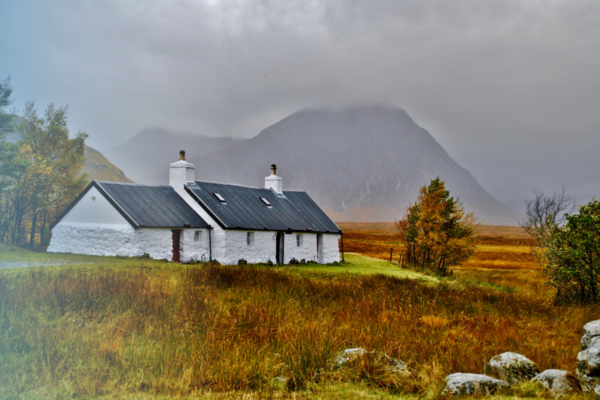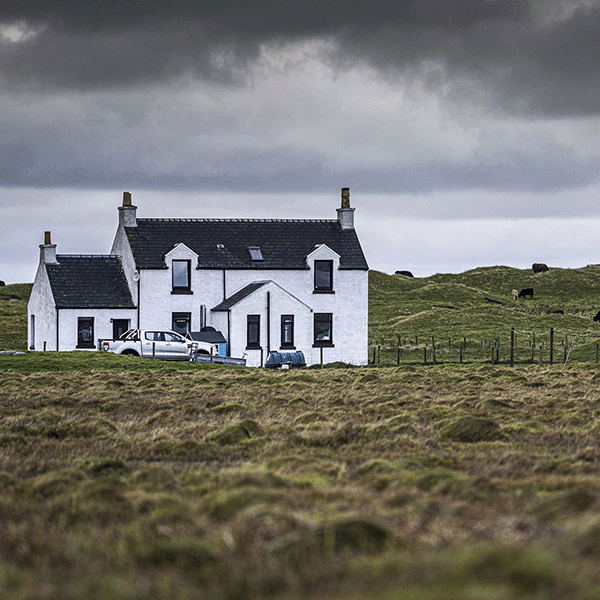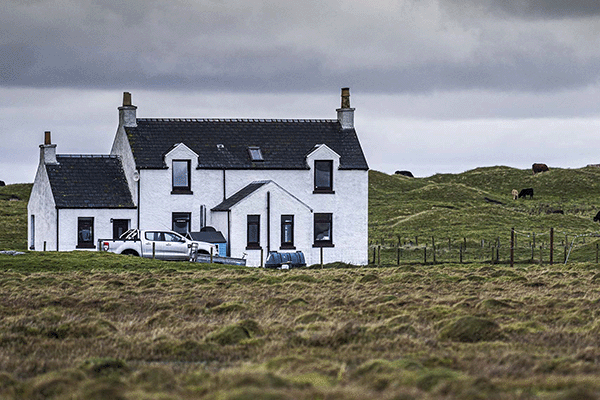Agribusiness News October 2024 – Management Matters: Heating Rural Housing
30 September 2024Heating Rural Housing
In rural areas of Scotland, heating and energy choices can be more challenging than in urban areas due to isolated locations, traditional stone constructions and detached properties.
There is a drive at the moment to improve the energy efficiency of housing across Scotland, however there’s no ‘one fit for all’ solution and research and costings should be undertaken before making any decisions with regards changing an existing system or when building a new home.
EPC targets
Energy Performance Certificates are produced when a domestic property is sold or let out. Prior to Covid, there was a target set by the Scottish Government to make all rental properties meet an efficiency level of C, and if not already at this level, then property owners were expected to work towards it over a period of time.
While this target has been shelved for the foreseeable future; it is not to say that the Scottish Government won’t revisit it in the coming years. There have also been whispers that when housing is sold, there could be penalties on the seller if the EPC is below a certain level.
Improving an EPC level in rural housing can prove challenging. Detached, stone-built properties are already at a disadvantage compared to semi-detached/terraced housing and flats where there a degree of heat being spread across the building footprint.
Is there funding available?
While, depending on your situation, there is currently funding through Government Energy Company Obligation schemes known as ECOs; as you would expect, it may not be that straightforward.
Air Source Heat Pumps are being promoted as replacements for gas and oil boilers but ensuring the right sized Air Source Heat pump is essential to prevent a jump in electricity bills. Tying in with renewable energy sources is also encouraged where possible, such as solar panels with battery storage. Equally, upgrading the windows, doors and insulation in a property will reduce heat loss and provide the occupant with greater comfort. But please ensure that the contractor undertaking the work is qualified, and the work comes with a warranty and a manufacturing guarantee.
Legislation changes
While the New Build Heat Standard (NBHS) regulations came into effect in April this year which stated that new homes and buildings were not allowed to use direct-emission heating systems including gas or oil boilers and wood burning stoves; following concerns that a ban on wood burners would negatively impact on people living in rural areas; a Government review was instigated in May. It is expected that the findings of the review will be published and implemented by the end of this year.
New technologies
As already mentioned, Air Source Heat Pumps are becoming increasingly popular for new builds and as replacements for existing heating systems. Consideration can also be given to underfloor heating, Ground Source Heat Pumps, and in some cases, Biomass systems. There is no doubt that there is a drive to move away from oil and gas. But when retrospectively fitting a new system, care should be taken to ensure that the technology works more efficiently than before by fitting the appropriate sized equipment including radiators and combining it with renewable energies and/or installing or upgrading property insultation.
Where to find further information
Further information on heating can be found at the following sources:
- Farm Advisory Service
- Home Energy Scotland
- Energy Saving Trust
- Win-Win - Crofter's Assistance for Energy Efficient Heating
Jennifer Galloway, jennifer.galloway@sac.co.uk
Sign up to the FAS newsletter
Receive updates on news, events and publications from Scotland’s Farm Advisory Service





